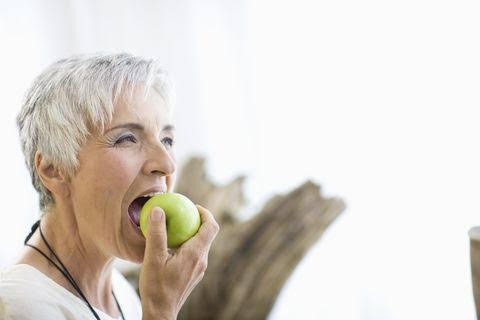What You Need to Know: Modern Management for The Menopause
Reaching menopause is a significant event in a women’s life and can have highs and lows. For some, the dread of oncoming symptoms and changes in the body overshadows the major milestone.
Dr Sarah Jeffs is a general practitioner at Safety Beach Medical and Wellness Practice on the Mornington Peninsula and specialises in women’s health. She enjoys being able to listen and advise women from early childhood, through their fertile years and into their post menopausal time.
“Menopause is a time of considerable change for women, and while there are certainly unwanted symptoms, there can a lot to be thankful for. There are no more periods, hormonal headaches or need for contraception”.
“You may also find that you have more independence around this time – less work commitments, children to look after, and certainly more time for adventure, travel and taking risks with new freedoms. For some it is really quite liberating.”
Menopause marks the end of female reproductive life where menstruation and ovulation stops, as does the production of oestrogen and progesterone. On average, women start menopause around the age of 50, with five per cent of women between 40 and 45 experiencing early menopause.
What happens during menopause?
More than 75 per cent of women experience menopausal symptoms. A quarter of women will describe them as severe and a third of them will go on to have long-term symptoms.
Symptoms can include:
- Irregularity of periods
- Hot flushes
- Mood swings
- Night sweats
- Sensitivity to temperature
- Emotional irritability
- Loss of libido
- Hair loss
- Sleep disorders
- Vaginal dryness and discomfort

“The key message here is that menopause can have a significant impact, and the symptoms are vast and varied,” says Dr Jeffs. “Sometimes menopause can affect every system in the body, mind and soul and so it requires the same holistic approach to recognising what this means to women and how best to manage it.”
How can I stay healthy during menopause?
Lifestyle factors are important in maintaining physical and mental health through the fluctuating symptoms of menopause

“Maintaining a healthy diet and doing weight-bearing exercise can help to sustain a healthy body weight while you experience menopause. It also helps promote bone density and has added benefits on women’s mental health” says Dr Jeffs.
“Conversely, it’s also a good idea to stop smoking and limit alcohol consumption around this time”
Mindset plays an important role in the impact of menopausal symptoms in some women and approaches to combating these. A Psychologist or Life Coach can be beneficial at this time to help focus the mind.
A healthy, happy vagina?
The decreased levels of estrogen in menopause have effects on the vagina and urinary system. In particular dryness, irritation, itching and pain with intercourse can affect 50% of women. This often persist and can get worse with time.
There are a number life style measures that can help (including wearing cotton underwear, avoiding soaps and using lubricants and vaginal moisturizers). The more troublesome vaginal symptoms may respond to prescriptions creams and menopause hormone therapy.
What helps symptoms of menopause?
Treatment on menopausal symptoms include
- Lifestyle
- Complementary therapies, these include to plant-based herbal remedies
- Prescription medications. These can be non hormonal such as antidepressants or or hormonal, known as menopausal hormone therapy (MHT). Menopausal hormone therapy uses estrogen, progesterone to combat symptoms of the menopause.
“Evidence shows that Hormone therapy remains the most effective in improving all symptoms of menopause and quality of life, and it comes in a few different forms and combinations,” says Dr Sarah Jeffs.
“If you are considering MHT, see your GP or a Gynaecologist. They will assess your blood pressure, weight, medical history and check you are up to date with your mammograms and pap smears; you can also discuss the risks and benefits on MHT with best current research”.
“There are only a few instances where menopausal hormone therapy is contradicted because the risks outweigh the benefits, with the main ones being breast cancer or other hormone-dependent cancers, clotting disorders and liver disorders.”
A note of warning with ‘compounded bio-identical hormone treatment’. The Australasian Menopause Society do not endorse the use of compounding bioidentical hormones therapies as their use is unproven and there may be risks, particularly the lack of endometrial protection’.
A holistic approach to medical care
Safety Beach Medical and Wellness Practice places patients at the centre of decisions and brings together a strong, integrated team of doctors and other health professionals to deliver a multidisciplinary approach to health and wellbeing.
Working within a team of specialists including Physiotherapy, Psychology and Dietetics, Dr Sarah Jeffs’ holistic model of care incorporates all aspects of a patient’s physical, emotional and spiritual needs to ensure a greater understanding of their medical needs.
“There’s no doubt that menopause can be a challenging time in a woman’s life but frequent conversations with your GP and a multifaceted approach can help to continue a healthy and happy life well into your leisure years.”


